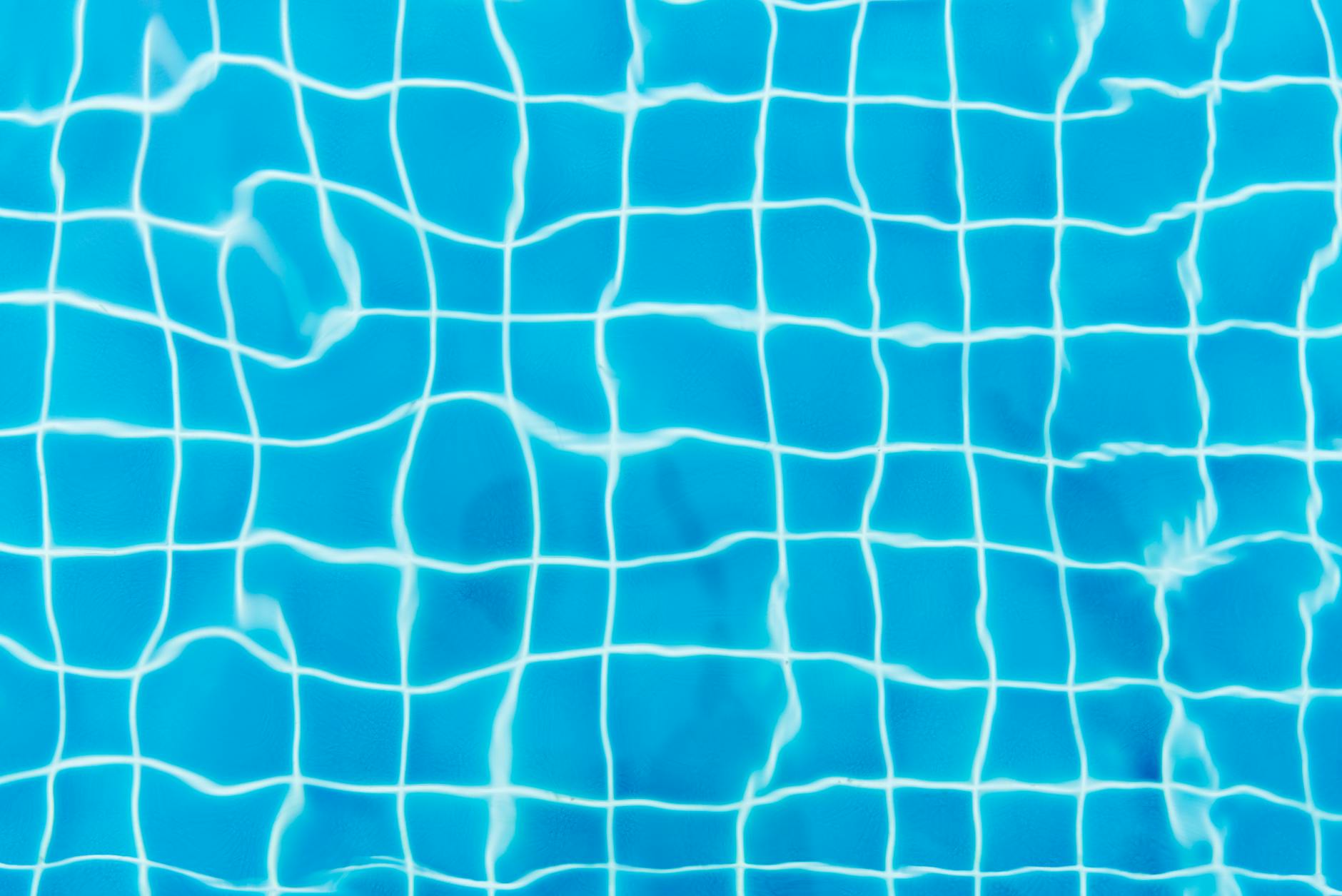Owning a swimming pool is a dream for many homeowners. It offers a personal oasis for relaxation, exercise, and family fun. However, maintaining a pool can seem daunting, especially for those new to pool ownership. In this ultimate guide, we will explore essential tips and practices to keep your pool in pristine condition all year long. We’ll cover everything from regular cleaning to the importance of using stabilized chlorine tablets, ensuring that your pool remains a safe and enjoyable place for everyone.
Key Takeaways
- Consistent cleaning and monitoring of water chemistry are crucial for a healthy pool.
- These tablets provide long-lasting sanitization and protect chlorine from UV degradation, reducing the frequency of additions.
- Each season requires specific maintenance tasks to keep your pool in top shape year-round.
- Regular checks on filters, pumps, and heaters can prevent costly repairs and ensure optimal performance.
- Be proactive in addressing problems like cloudy water and algae growth to maintain a clean and inviting pool.
Understanding Pool Maintenance
Maintaining your pool involves several key components: water chemistry, cleaning, equipment upkeep, and regular inspections. Each aspect plays a vital role in ensuring that your pool is not only safe to swim in but also visually appealing and long-lasting. Let’s break down these components for easier understanding.
1. Water Chemistry
The first step in pool maintenance is keeping the water chemistry balanced. Proper water chemistry prevents problems such as algae growth, cloudy water, and skin irritations. Here are the main components to monitor:
- pH Levels: Ideal pH levels should be between 7.2 and 7.8. This range ensures that chlorine is effective and helps prevent scale and corrosion.
- Alkalinity: The total alkalinity should be between 80 and 120 ppm (parts per million) to stabilize pH levels.
- Chlorine Levels: Keeping chlorine levels between 1-3 ppm is essential for disinfection. Using swimming pool chlorine tablets can help maintain these levels effectively.
Understanding pH Levels
The pH level of your pool water is crucial for maintaining water clarity and comfort. If the pH is too low, the water becomes acidic, which can irritate skin and eyes, and damage pool surfaces. Conversely, if the pH is too high, it can cause scaling and reduce the effectiveness of chlorine. Regular testing with pool test kits or strips can help you maintain the right pH level.
2. Importance of Stabilized Chlorine Tablets
One of the most effective ways to manage chlorine levels is by using stabilized chlorine tablets. These tablets provide long-lasting sanitization by gradually releasing chlorine into the water. They contain stabilizers that protect chlorine from being destroyed by sunlight, which means you won’t have to add chlorine as often. This not only saves you time but also reduces costs in the long run.
How to Use Stabilized Chlorine Tablets
To use stabilized chlorine tablets effectively, simply place them in a floating dispenser, skimmer, or automatic feeder. This ensures that the tablets dissolve evenly and maintain consistent chlorine levels throughout the pool. For best results, follow the manufacturer’s instructions regarding dosage based on your pool size and usage.
3. Regular Cleaning
A clean pool is a healthy pool. Regular cleaning involves several tasks:
- Skimming: Use a skimmer net to remove leaves, debris, and insects from the surface of the water. This should be done daily, especially during windy conditions.
- Brushing: Brush the walls and floor of your pool weekly to prevent algae buildup. Pay special attention to areas that may not get much circulation.
- Vacuuming: Use an automatic or manual pool vacuum to clean the bottom of the pool, especially in areas where debris tends to accumulate. Vacuuming should be done at least once a week.
Cleaning Tools to Invest In
Investing in the right cleaning tools can make your maintenance tasks easier and more effective. Here are some essential tools to consider:
- Skimmer Net: A fine mesh net on a pole for skimming debris from the surface.
- Pool Brush: A sturdy brush with a long handle for scrubbing walls and steps.
- Vacuum: Whether automatic or manual, a good vacuum is essential for removing dirt and debris from the pool floor.
4. Equipment Maintenance
Your pool’s equipment plays a crucial role in keeping the water clean and clear. Regular maintenance checks can prevent costly repairs down the line:
- Filter: Clean or replace your pool filter as needed, depending on usage and the type of filter (sand, cartridge, or diatomaceous earth). A clean filter allows for better water flow and filtration.
- Pump: Check the pump for proper operation. Ensure that it runs for the recommended amount of time to circulate water effectively. A typical residential pool pump should run for about 8-12 hours a day.
- Heater: If you have a pool heater, check it regularly for any signs of wear or malfunction. Ensure that the heater is cleaned and inspected at the start of each swimming season.
5. Seasonal Care
Maintaining a pool isn’t just a summer task; it requires attention year-round. Here’s how to care for your pool in each season:
Spring
- Inspect and Clean: Remove any winter covers and clean the pool thoroughly. This includes scrubbing the walls, vacuuming the bottom, and checking for any damage that may have occurred during the winter months.
- Test Water: Check water chemistry and adjust pH and chlorine levels as needed. This is a crucial step as spring often brings a surge in algae growth.
- Start Equipment: Turn on the pump and filter system to ensure everything is functioning correctly. Check for any leaks or unusual noises that may indicate a problem.
Summer
- Regular Maintenance: Keep up with daily skimming, brushing, and vacuuming. Summer is typically the busiest season for pools, so consistent maintenance is key.
- Monitor Water Levels: Evaporation can lower water levels, so refill as necessary. Ensure that your pool maintains a proper water level for optimal skimming and filtration.
- Check Chemical Levels: Test the water weekly to maintain proper chemical balance. You may need to adjust chlorine levels more frequently during hotter weather.
Fall
- Prepare for Winter: As temperatures drop, start reducing the pool’s water level and add winterizing chemicals. This helps prevent freeze damage and prepares the pool for winter.
- Cover the Pool: Use a winter cover to prevent debris accumulation and protect the pool from the elements. Ensure the cover is secure to prevent wind from blowing it off.
Winter
- Maintain Temperature: If you live in a colder climate, consider using a pool heater or keeping the pool covered to prevent freezing. Some homeowners choose to drain their pools completely, while others keep water in to avoid structural damage.
- Check Equipment: Regularly inspect your pool’s equipment to ensure everything is secure and functioning. This is also a good time to clean and store any removable equipment for the season.
6. Troubleshooting Common Issues
Despite your best efforts, issues may still arise. Here are some common problems and how to address them:
- Cloudy Water: This can be caused by poor filtration, improper chemical balance, or algae growth. Check your filters, balance your chemicals, and consider using flocculants to clear the water.
- Algae Growth: Regular brushing and using stabilized chlorine tablets can prevent algae. If it appears, shock your pool and maintain chlorine levels. It may take several treatments to fully eliminate algae, so be persistent.
- Stains: Stains can occur from metals in the water or organic debris. Use a stain remover and ensure proper chemical balance to prevent future occurrences. Regularly checking your water source for metal content can help prevent stains.
7. Safety Considerations
Safety is paramount when it comes to pool maintenance. Here are some essential safety tips:
- Child Safety: Always supervise children when they are in or around the pool. Consider installing barriers or safety covers to prevent unsupervised access.
- Chemical Handling: When handling pool chemicals, always wear gloves and goggles. Store chemicals in a cool, dry place, away from children and pets.
- Emergency Preparedness: Keep a first aid kit near your pool area and ensure that everyone knows how to respond in case of an emergency.
8. Enhancing Pool Enjoyment
To truly enjoy your pool, consider enhancing the experience with additional features:
- Lighting: Install underwater or landscape lighting to create a beautiful ambiance for evening swims.
- Heating: A pool heater can extend your swimming season, allowing you to enjoy your pool even in cooler months.
- Furniture: Invest in comfortable loungers, tables, and umbrellas to create a relaxing outdoor space.
Frequently Asked Questions (FAQs)
How often should I test my pool water?
It’s recommended to test your pool water at least once a week during the swimming season and every few weeks during the off-season.
Can I use stabilized chlorine tablets in hot tubs?
Yes, stabilized chlorine tablets are suitable for both pools and hot tubs, providing effective sanitation for various water systems.
What should I do if my pool water turns cloudy?
Check and adjust your water chemistry, ensure proper filtration, and consider using flocculants. Regular brushing and vacuuming can also help clear cloudy water.
How do I prevent algae growth in my pool?
Maintain proper chlorine levels, regularly clean your pool, and consider using algaecide as a preventative measure. Stabilized chlorine tablets can also help keep algae at bay.
What is the ideal pH level for pool water?
The ideal pH level for swimming pool water is between 7.2 and 7.8 to ensure effective chlorine sanitation and prevent skin irritation.
Conclusion
Maintaining your pool for year-round enjoyment doesn’t have to be overwhelming. By following these guidelines and using high-quality products like stabilized chlorine tablets and swimming pool chlorine tablets, you can ensure your pool remains a clean, safe, and inviting space. Regular maintenance, attention to water chemistry, and seasonal care are all crucial in maintaining that perfect oasis in your backyard.


